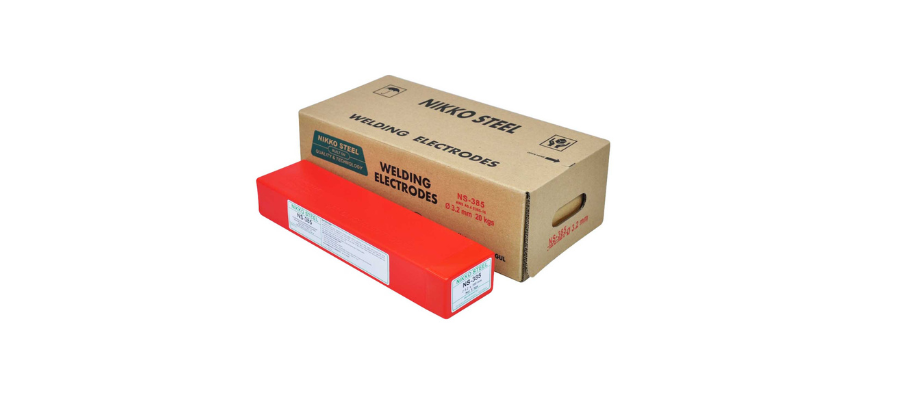FOR WELDING FULLY AUSTENITIC STEELS CONTAINING A NOMINAL 20Cr-25Ni-5Mo and 2Cu WHEN GOOD CORROSION RESISTANCE IS SPECIFIED
NS-385

CLASSIFICATION
AWS A5.4 E385-16 | EN ISO 3581-A E 20 25 5 Cu N L R
PRODUCT DESCRIPTION
A unique rutile based flux formulated with very low levels of acid and amphoteric minerals combined with small alloy additions to compensate for arc losses. The flux is concentrically extruded onto a fully alloyed core wire and bound by a blend of silicates that assures both coating strength and resistance to subsequent moisture absorption.
WELDING FEATURES OF THE ELECTRODE
The electrode is used to best advantage on DC+ but is also stable on AC. Weld beads are smooth and slag detachability is good. Because weld metal silicon is low by design to reduce solidification cracking (a feature common to all ferrite free austenitic alloys), the weld profile is more u-convex than normal.
APPLICATIONS AND MATERIALS TO BE WELDED
This electrode ensures good resistance to corrosion against sulphuric, phosporic and other organic and inorganic acids. When welding ASTM N08904, BS1449 904513 and BS1504-364 C11.
Proprietary alloys include Uddleholm 904L, Sandvik 2RK65, Cronifer 1925LC(UDM), 254 SLX (Avesta), Uranus B6 and B6M. Can also be used to weld copper free variants of above and lower alloyed variants such as 317L, 317LN, 317LM. Applications include pipes and process vessels, pumps and valves used infertilizer plants
WELDING AMPERAGE AC and DC
OTHER DATA
Electrodes that have become damp should be re-dried at 150oC for 1 hour